Sights + Sounds
|
This was our last playtest using the completed cloth board and newly printed cards. The game has a more professional feel now and the updated visuals assist in explaining play. The board can be used to wrap up the cards and pieces in a bundle, which resembles a secret package or a piece of contraband.
Play testing Notes:
Highlights:
After our formal playtest, our playtesters gave us feedback using google forms. Here are some observations we made from this feedback.
[When political influence runs out and resources continue to accumulate, double or triple the cost to play a second propaganda card.] We decided to allow the play of more than one propaganda card at an increased cost for each subsequent card played. [If there are more than 5 cards in the player’s hand at the end of the turn, discard one card of your choice in order to maintain a default hand of 5] Instead of following this suggestion, we allowed a larger hand. This is balanced by the fact that if you use many cards in one turn, you need to wait to accumulate cards, or save them for a combo. [“Lightning Round”: Once PI cards run out, double the cost of all propaganda cards.] To avoid this, political influence cards can be re-shuffled when they run out. This prevents play from becoming monotonous in the endgame. [Do something to give the player with the resource advantage, an actual advantage. One card limit and max cost of 3 makes it easy to counter the player who has the upper hand.] In this iteration, the dictator always goes first, but the rebellion gets an extra resource to start. This turned out to be unfair, so instead the dictator does not draw on his first turn while the rebellion does. For this playtest, we expanded the field of the ideological spectrum and added a new mechanic in that to move citizens outside of your opponent's side, you must spend resources to "unlock" that zone. This is a metaphor for how ingrained in an ideology propaganda can make a person. We also created a resource accumulation mechanic that gave a "stockpile of resources" to the players that would increase at the beginning of every turn.
For this playtest, our goal was to determine a proper deck composition to balance propaganda card appearance. We also created a resource associated with political influence and had a few effects of those cards to test. This was meant to shake up the game and make more interesting player vs player choices.
This iteration scrapped our previous idea of asymmetrical play. We came up with a new structure based on moving citizens along a singular ideological spectrum between a dictator and a singular rebellion. Our propaganda cards included three values, the amount of citizens you can move, how far you can move them, and how many miscellaneous resources must be accumulated and spent to use that card. Resources are harvested by citizens depending on how they are arranged on the field. When one play has a majority of citizens on their end of the field, they win.
This playtest felt very successful, and we feel like we have a more solid framework to build from. In this iteration, we included zones that functioned as bases to place units. Still working with a framework inspired by "Magic," we found that the factions were too unbalanced, and with too many moving parts, it didn't feel like a game that could hold itself together.
We playtested mechanics related to a new iteration still working with the theme of a dictatorial regime. This version used an asymmetrical, 3 faction system consisting of the dictator, the aristocracy, and the dissident rebels all competing for power. Each faction would use a different set of resources to perform actions against the other two.
Google Doc During our first session, we came together to brainstorm multiple ideas and possibilities for game themes and topics. Ultimately, our group decided to go with a game centered around a dictator who rises up through the use of effective propaganda. |
Group MembersBrian Nacov Archives
December 2017
Categories |
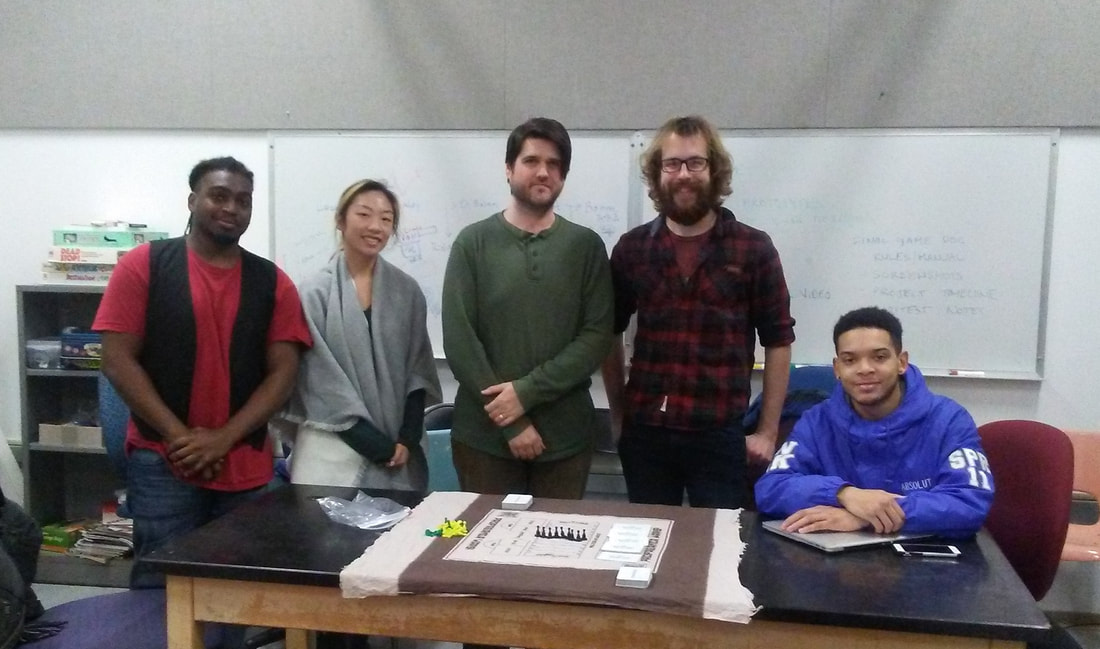
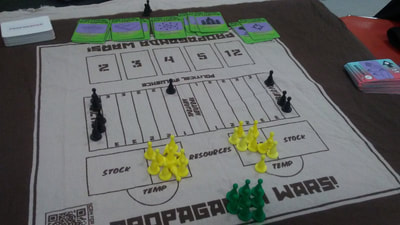
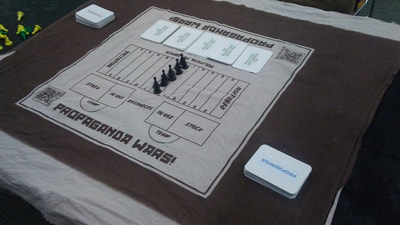
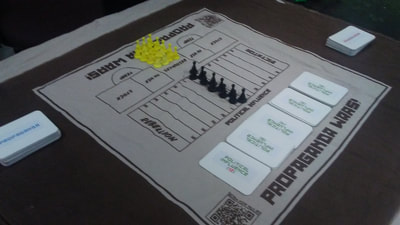
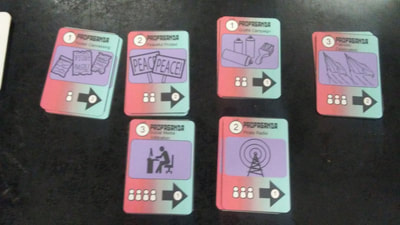
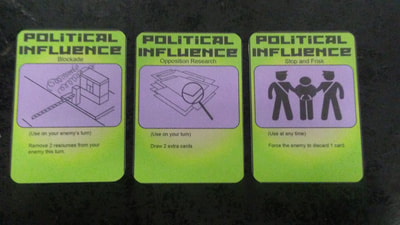
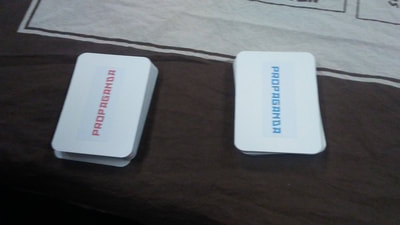
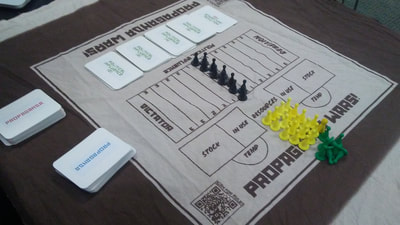
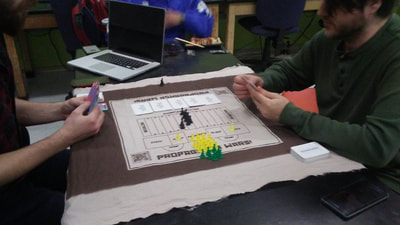
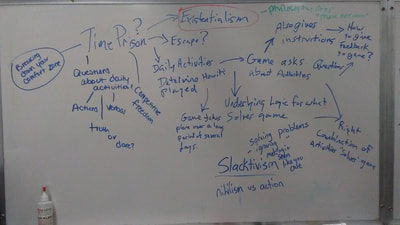
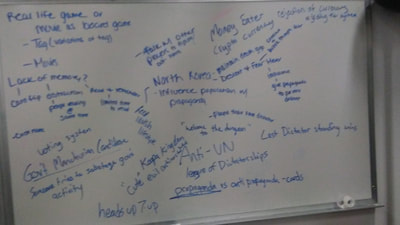
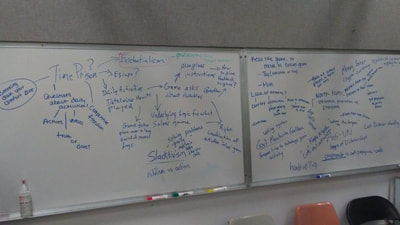
 RSS Feed
RSS Feed
